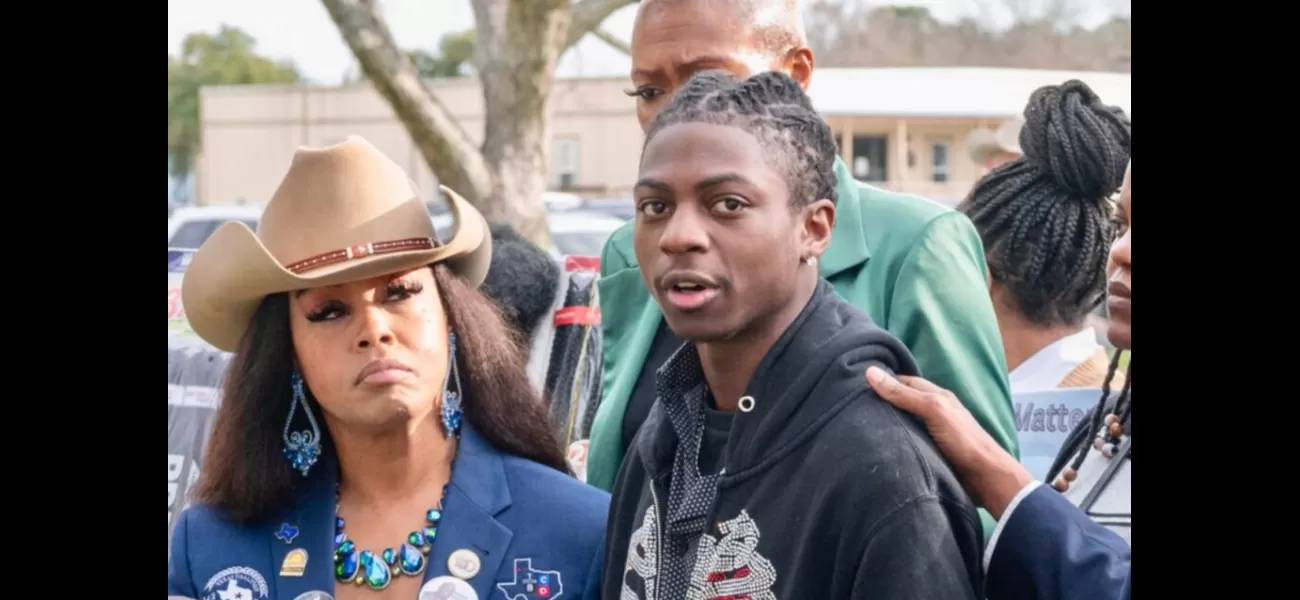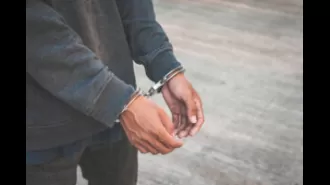Court rules against Darryl George in racial discrimination case, but allows sex discrimination claim to continue.
George felt a range of emotions during the long ordeal.
August 8th 2024.

According to a report from CNN, Darryl George, a Black teenager in Texas, recently lost his racial discrimination case against his school district for refusing to change his hairstyle. However, the judge did allow his sex discrimination case to move forward.
US District Court Judge Jeffrey Vincent Brown made this decision based on the dismissed claims, stating that George and his family failed to prove a consistent and widespread practice of enforcing the school's hair policy based on race. Brown explained, "The plaintiffs only presented two instances, one being George's case and the other being the Arnold case, which is also currently being heard in this court. These two instances alone are not enough to establish a pattern of behavior that is persistent and widespread."
The judge also dismissed the family's other claims, including infringement of George's First Amendment rights and their request for compensation for mental distress. However, the sex discrimination claims were allowed to continue in a federal civil rights lawsuit.
Brown noted that while the school district provided reasons for implementing a dress code, they did not provide any justification for the differences between male and female students. He stated, "The district did not give any reasons for the sex-based distinctions in their dress code, which allows the claim to move forward at this stage."
This ruling came just a few months after another federal judge dismissed the state's CROWN Act, a law that prohibits discrimination based on hair texture and protective hairstyles commonly associated with race. This ruling does not prevent school dress codes from limiting the length of a student's hair. In summary, the Barbers Hill Independent School District did not violate state law by punishing George for the length of his hair.
After the CROWN Act decision, George shared how the lengthy ordeal had affected him emotionally. "It brings up a lot of emotions for me. I feel angry, sad, and disappointed," he said while holding back tears. The Guardian also reported that additional cases against Texas Governor Greg Abbott and Attorney General Ken Paxton were dismissed in this ruling. They were accused of failing to enforce the act, which was set to go into effect in 2023.
Towards the end of his ruling, the judge compared George's case to a similar one from 1970, where he ruled against a school district in El Paso, Texas. The district had tried to prevent a male student from enrolling due to his hair length, claiming it violated their policy. Although the ruling was later overturned, the judge stated that "the enforcement of the hair-cut rule caused more disruption in the classroom than the hair it sought to prohibit." Brown agreed, adding, "Unfortunately, the same is true in this case."
This is not the first time the Barbers Hill hair policy has faced criticism. In May 2020, two other students filed a federal lawsuit against the high school, and after one of them returned following a temporary injunction, he stated in his pending case that there was a high chance his rights to free speech and protection from racial discrimination would be violated if he was not allowed to attend.
US District Court Judge Jeffrey Vincent Brown made this decision based on the dismissed claims, stating that George and his family failed to prove a consistent and widespread practice of enforcing the school's hair policy based on race. Brown explained, "The plaintiffs only presented two instances, one being George's case and the other being the Arnold case, which is also currently being heard in this court. These two instances alone are not enough to establish a pattern of behavior that is persistent and widespread."
The judge also dismissed the family's other claims, including infringement of George's First Amendment rights and their request for compensation for mental distress. However, the sex discrimination claims were allowed to continue in a federal civil rights lawsuit.
Brown noted that while the school district provided reasons for implementing a dress code, they did not provide any justification for the differences between male and female students. He stated, "The district did not give any reasons for the sex-based distinctions in their dress code, which allows the claim to move forward at this stage."
This ruling came just a few months after another federal judge dismissed the state's CROWN Act, a law that prohibits discrimination based on hair texture and protective hairstyles commonly associated with race. This ruling does not prevent school dress codes from limiting the length of a student's hair. In summary, the Barbers Hill Independent School District did not violate state law by punishing George for the length of his hair.
After the CROWN Act decision, George shared how the lengthy ordeal had affected him emotionally. "It brings up a lot of emotions for me. I feel angry, sad, and disappointed," he said while holding back tears. The Guardian also reported that additional cases against Texas Governor Greg Abbott and Attorney General Ken Paxton were dismissed in this ruling. They were accused of failing to enforce the act, which was set to go into effect in 2023.
Towards the end of his ruling, the judge compared George's case to a similar one from 1970, where he ruled against a school district in El Paso, Texas. The district had tried to prevent a male student from enrolling due to his hair length, claiming it violated their policy. Although the ruling was later overturned, the judge stated that "the enforcement of the hair-cut rule caused more disruption in the classroom than the hair it sought to prohibit." Brown agreed, adding, "Unfortunately, the same is true in this case."
This is not the first time the Barbers Hill hair policy has faced criticism. In May 2020, two other students filed a federal lawsuit against the high school, and after one of them returned following a temporary injunction, he stated in his pending case that there was a high chance his rights to free speech and protection from racial discrimination would be violated if he was not allowed to attend.
[This article has been trending online recently and has been generated with AI. Your feed is customized.]
[Generative AI is experimental.]
0
0
Submit Comment





